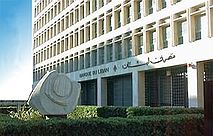 Lebanon, where Muslims make up more than half the population, is considering legislation to boost Islamic finance after the industry failed to garner 1 percent of total banking assets.
Lebanon, where Muslims make up more than half the population, is considering legislation to boost Islamic finance after the industry failed to garner 1 percent of total banking assets.
The central bank is working with a group of local lenders to amend a 2004 law that allowed the establishment of Shariah- compliant banks, First Vice-Governor Raed Charafeddine said in an interview Nov. 5 in Beirut. The Bank of Lebanon is also considering introducing a product in the first quarter that helps Islamic lenders manage their liquidity, he said. Policy makers granted a banking license to Baghdad-based Al-Bilad Islamic Bank earlier this year.
“The Islamic banking law came out as a compromise in 2004,” Charafeddine said. “It didn’t give the industry enough steam to take off. We are at the preliminary stages of rectifying the 2004 law.”
Lebanon is seeking to diversify its banking industry and rebuild the country after the conflict with Israel in 2006 and a 15-year civil war that ended in 1990. Assets held by Islamic banks shrank to about 0.5 percent of the total $110 billion this year, Charafeddine said. Muslims make up 60 percent of the population of 4.1 million, according to the Central Intelligence Agency World Factbook.
The Mediterranean country’s economy, helped by tourism and bank deposits from citizens living abroad, grew 9 percent last year and is forecast by the International Monetary Fund to expand another 8 percent this year.
Rising Deposits
Deposits grew about 24 percent last year to $103 billion, around three times the country’s gross domestic product. Deposits may rise by more 10 percent this year, central bank Governor Riad Salameh said in September.
The country’s Islamic banking law stipulates product offerings and allows non-Shariah-compliant lenders to hold shares in Islamic banks, according to the central bank’s website.
On a day-to-day basis, “there are many things that are hindered by the current laws,” Houssam Tabbara, marketing manager at Lebanese Islamic Bank, said in a telephone interview from Beirut yesterday. Ending the double taxation of property, which reduces the risk and cost for an Islamic bank to lease real estate, and scrapping requirements for 15 percent down payments on transactions, would boost business, he said.
Not Enough Time
Beirut-based Lebanese Islamic Bank started offering Shariah-compliant services in 2005 after receiving the first Islamic banking license from the central bank, according to data on its website. Albaraka Banking Group BSC, the biggest publicly traded Islamic lender in Bahrain, Arab Finance House S.A.L. (Islamic Bank) and Blom Development Bank S.A.L. are the other three shariah-compliant banks in the country.
Islamic banks didn’t invest enough time in educating people and need to be more proactive, the central bank’s Charafeddine said.
“It’s a lost cause,” Ahmad Alanani, the Dubai-based director of fixed-income sales at investment bank Exotix Ltd., said in an interview yesterday. “Conventional banks have a very strong hold on that market that Islamic banks simply cannot compete.”
The difference between the average yield for emerging- market sukuk and the London interbank offered rate narrowed to 335 basis points, or 3.35 percentage points, yesterday from 338 on Nov. 5. The spread shrank from 373 basis points at the end of last month, according to the HSBC/NASDAQ Dubai US Dollar Sukuk Index.
Underperforming
Global sukuk returned 13 percent this year, according to the HSBC/NASDAQ Dubai US Dollar Sukuk Index that compares to an 18 percent gain for bonds in developing markets, the JPMorgan Chase & Co.’s EMBI Global Diversified Index shows.
The yield on Malaysia’s 3.928 percent Islamic note due in June 2015 was little changed at 2.35 percent yesterday, according to prices provided by Royal Bank of Scotland Plc. The extra yield investors demand to hold Dubai’s government sukuk rather than Malaysia’s grew to 388 basis points yesterday from 386 on Nov. 5, according to data compiled by Bloomberg.
“I am not sure that the growth or success of the industry can be wholly driven by legislation,” Khalid Howladar, senior credit officer at Moody’s Investors Service, said in a response to e-mailed questions on Nov. 8. “As long as they can operate on reasonably equal terms it’s the customers who will decide the fate of the industry in Lebanon.”
Shariah forbids gambling, payment of interest and alcohol, so fund managers have to select investments deemed halal, or permissible. Islamic bonds are typically backed by assets or cash flow because of the ban on interest. Investors earn any profit from the assets instead.
Sales Fall
Global sukuk sales declined 29 percent to $13.7 billion this year, according to data compiled by Bloomberg.
Lebanon, which is a regular issuer of non-Islamic bonds doesn’t plan to issue sukuk, especially if the transaction has to be backed by assets, as it will require a law that allows the state to pledge public assets, central bank Governor Riad Salameh told reporters in Beirut on Nov. 4.
“Our interest as a central bank in this industry is simply to keep Islamic banking at a level playing field with conventional banking,” Charafeddine said. “This is why we are keen on giving Islamic banks that opportunity. We don’t want to favor anyone.”
Bloomberg

Leave a Reply
You must be logged in to post a comment.